Merchant & Mills Cloth by the Metre ~ Wes
$85/per metre - Sold in 0.5m increments.
European laundered linen tumbled at the mill for softness. Wes is a fabulous pink and mustard gingham. Wouldn't be out of place in a Wes Anderson film.
This linen is produced in small batches in Eastern Europe where there is a strong heritage of spinning and weaving linen fabric.
Wes can be used for many of our patterns, ideally dresses, skirts, tops, and loose fitting trousers.
We have many colour ways in this check, to see these click on the ‘Alternatives’ tab.
- 145cm wide.
- 5.9oz, 200gsm.
- 100% linen.
- Check size: 13mm.
- Wash at 30 degrees with a non bio detergent. Do not tumble. Shake out and dry flat. Linen will always seize up after washing but as soon as you start to use/wear it the fibres relax again.
- If you are using this linen for curtains we recommend using a lining to prevent fading.
- Never dry linen in direct sunlight as the colour can bleach and fade.
- Made using AZO-free dyes.
- As all computer monitors show colours differently, we recommend ordering a sample of the cloth to check it is the right colour and weight for your project.
- Thread match Gutermann Sew All 968.
It is anti-bacterial, anti-fungal, hypo allergenic and thermoregulating, it will also absorb up 20% moisture before feeling damp.
As the linen fibres have low elasticity (which causes it to crease) it will wear in any areas that are repeatedly folded in the same place for a long time, however it does have much better abrasion resistance than say cotton.
Flax is a strong plant best grown in northern Europe. It needs little or no fertilisers and due to the local climate, little extra water. It doesn’t really require many pesticides either as it can grow in poor quality soil. The Advisory Commission Report to the European Parliament stated that flax cultivation has positive effects on eco-system diversity as it allows for an “environmental pause”. One hectare of flax can retain 3.7 tonnes of CO2. Every part of the plant is used, what isn’t used to produce linen can be used to make linseed oil, paper, cattle feed or even soap.
Linen is therefore almost naturally organic. It is completely biodegradable, recyclable and due to its natural absorbency, it requires less dye than cotton. Linen therefore scores high on the ecological chart.






